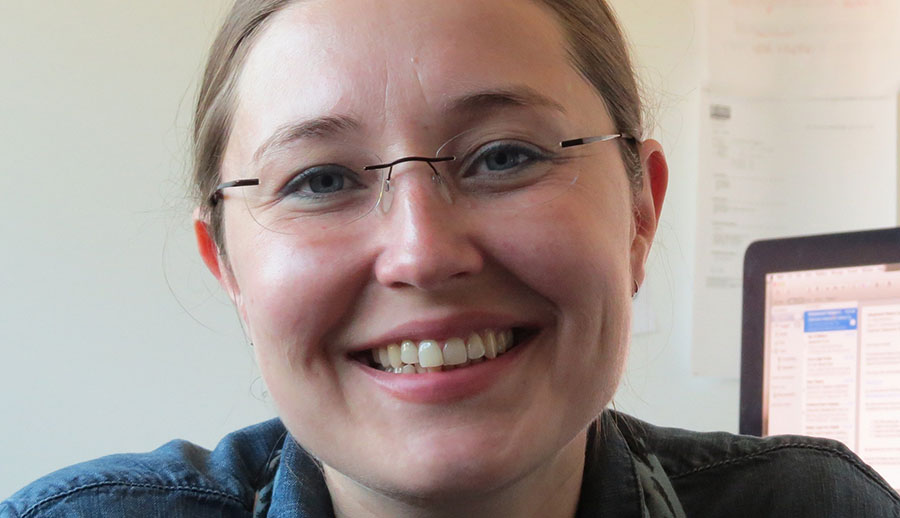BOONE—Changes to modernize the biology curriculum and address a variety of learners has resulted in a restructuring of the four-year biology curriculum at Appalachian State University, starting with the introductory courses. The work of a team of biology faculty is part of the nationwide Partnership for Undergraduate Life Science Education (PULSE) initiative to rethink the way biology is taught at the university level.
“Introductory biology has been taught the same way for several decades,” said Sarah Marshburn, interim director of the general biology program in the Department of Biology at Appalachian. Marshburn was one of 33 faculty who completed the Course (Re)Design Institute at Appalachian. She is also an active member of Southeast Regional PULSE (SERP).
Their work was also influenced by UNC’s College STAR initiative that encourages faculty to make their courses more accessible to all students, including those with learning differences. As part of College STAR, Appalachian sponsored an intensive four-day Course (Re)Design Institute for faculty in 2014 and 2015.
Marshburn said that biology has changed significantly over the years, and today’s science majors need to approach it from a modern perspective. Non-science majors can benefit more from an approach that teaches them how to evaluate scientific data so they can make informed decisions about daily and societal issues.
In the redesigned introductory course for non-science majors, for example, faculty may pose a question of current interest and use that as a platform for teaching students how to find reliable sources of information and evaluate scientific data.
Marshburn said Appalachian faculty members have embraced the new approach. “They know from experience that being a sage on the stage is not effective,” she said, “and they want to try different, more active learning strategies.”
Because thousands of students take introductory biology courses, students include every type of learner. Marshburn said those designing the new curriculum are cognizant of the need to build resources and use instructional practices that appeal to all types of learners.
Although more formal measurement will be undertaken in the future, Marshburn said initial feedback has been positive. “When you hear a student talking about a required course saying, ‘This isn’t bad, I learned something, it’s kind of cool,’ you know you are on the right track,” she said.
Marshburn recently presented a poster on Appalachian’s curriculum reform at a meeting of the Association of Southeastern Biologists. The team, which includes Zack E. Murrell, Gary L. Walker and Dru Henson, shared how they developed a curriculum model to provide faculty with a design strategy for tackling the complex problem of revamping a curriculum.
The team used a backward design approach that Marshburn learned in the Course (Re)Design Institute, focusing on the ideal outcome first and then designing a strategy to get there. “This type of approach is efficient and effective because it is goal-driven,” Marshburn said.
“We believe we created a framework that empowers the next generation of biologists, incorporates modern teaching concepts, better uses our resources, and better serves the needs of everyone involved,” she said. “It is exciting for us to be part of a wave of innovation in biological teaching practices.”
About Appalachian State University
As a premier public institution, Appalachian State University prepares students to lead purposeful lives. App State is one of 17 campuses in the University of North Carolina System, with a national reputation for innovative teaching and opening access to a high-quality, cost-effective education. The university enrolls more than 21,000 students, has a low student-to-faculty ratio and offers more than 150 undergraduate and 80 graduate majors at its Boone and Hickory campuses and through App State Online. Learn more at https://www.appstate.edu.
What do you think?
Share your feedback on this story.




![How NCInnovation Is Rethinking Economic Development in North Carolina [faculty featured]](/_images/_posts/2026/02/rethinking-economic-development-600x400.jpg)







